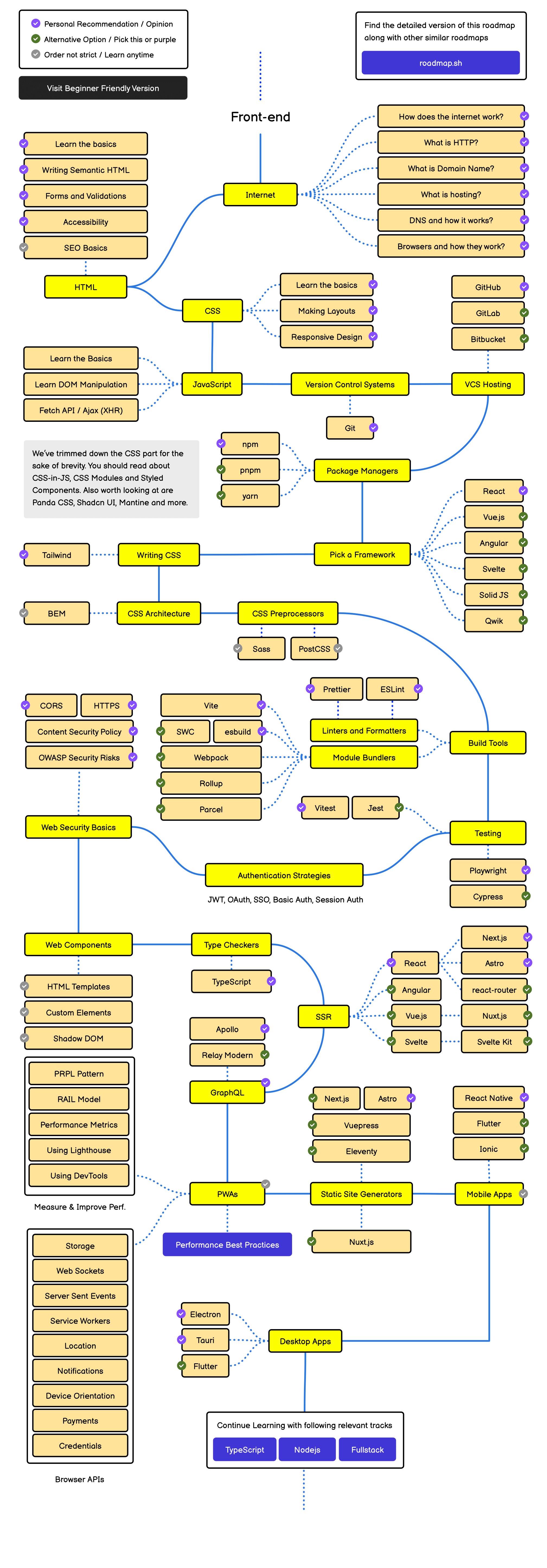Amanda, this is a great idea! A potential user basically just tweeted a plea for this: https://twitter.com/MorganEONeill/status/1225613102483304448
I need a roadmap and/or nested hierarchy of these things and/or literally just a link to the right tutorial/ppt/walk-through of all these different nifty resources...
It reminds me a bit of these great "developer roadmaps", .e.g. https://roadmap.sh/frontend

Maybe we should try to create such a diagram for Pangeo.
I have been thinking about how best to create a Introduction to Pangeo "course" as we have been getting lots of questions from users who are unsure even about the fundamentals of docker containers and Jupyterhub, which one would need to understand to some degree in order to get packages working and to understand what can and cannot be realistically achieved by using the Pangeo platform.
I would like to solicit feedback on how best to market Pangeo to beginners, how to introduce users to the fundamental components that make up Pangeo and to help them envision a workflow that they can port to their own work. There a many things with using Pangeo that might be lost on an entirely new user (such as installing their own conda packages). I feel that it might be best to design such a "course" in more of a niche setting - for example, if we want to design the course in the context of working with NASA datasets and AWS, the modules might look something like this:
Would something like that be helpful, encourage more uptake and interest in Pangeo and is there a need to develop new notebooks/materials or are there existing notebooks/materials that can be recycled in this context?